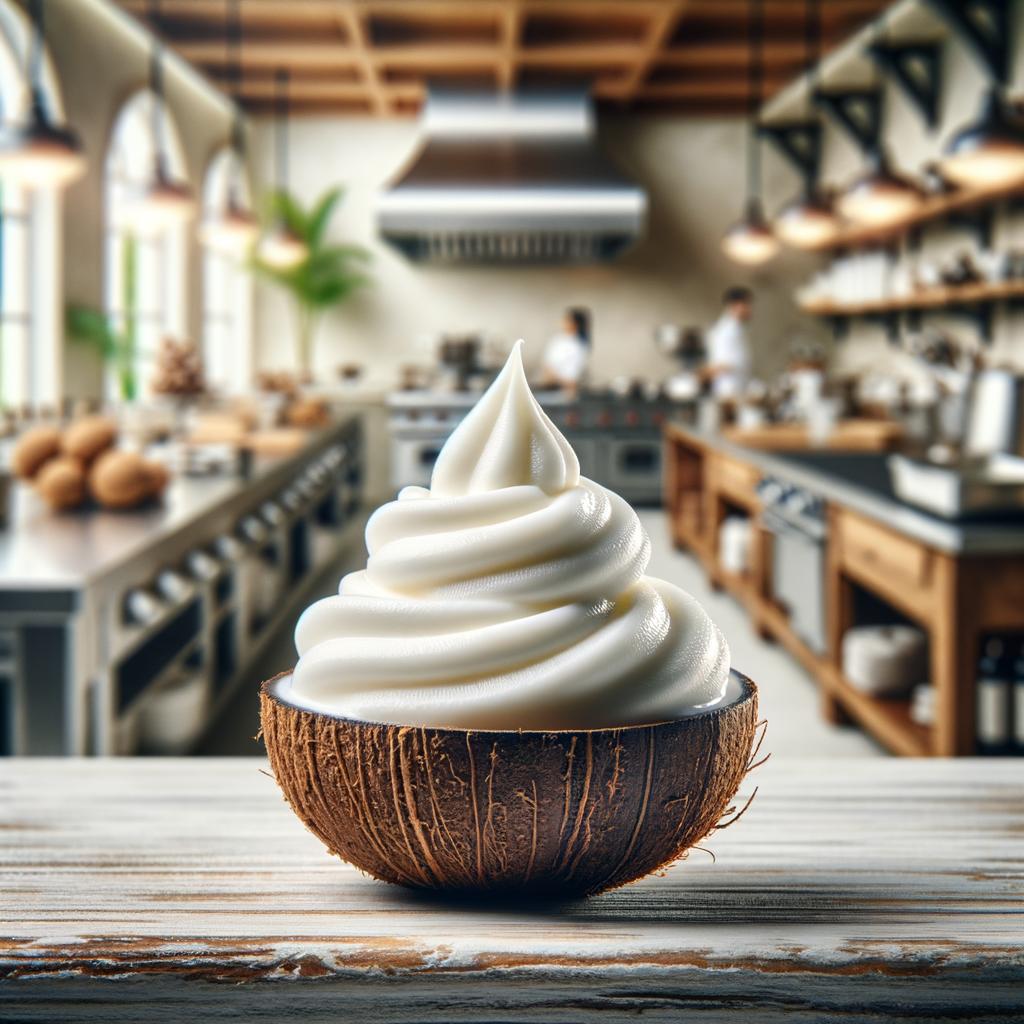Coconut Cream

Description
Coconut cream, a luscious tropical delight, is the thick, rich and non-transparent part of coconut milk that rises to the top when left to settle. It has a velvety texture, a creamy white hue, and a rich, sweet, and slightly nutty flavor. The dreamy creaminess of this ingredient sets it apart from other dairy and non-dairy cream substitutes. Its unique characteristic is its high saturated fat content, which makes it solidify at cooler temperatures, and its ability to lend a luxurious, tropical note to dishes.
Primary Uses
Coconut cream is a versatile ingredient that transcends culinary boundaries. It's the star in a variety of dishes from different cuisines around the world. In Thai cooking, it's used to create the creamy base for curries and soups. In Indian cuisine, it adds richness to a variety of dishes from savory curries to sweet desserts. In the Caribbean, it's a key ingredient in traditional dishes like the Jamaican rundown. It's also used in cocktails, like the famous Piña Colada. Outside the culinary world, coconut cream is used in skincare for its moisturizing properties.
History
The use of coconut cream dates back thousands of years in tropical regions where coconut palms naturally grow. It is believed that Austronesian sailors were the first to exploit the culinary potential of coconuts, including the cream, during their sea voyages across the Indian and Pacific Oceans. In Polynesian folklore, the coconut tree, or the 'Tree of Life', was a gift from the gods, and every part of the tree, including the cream, was used. Over time, as trade routes expanded, the use of coconut cream spread to other parts of the world, where it was embraced for its exotic flavor and versatility.
Nutritional Information
Coconut cream is a nutritional powerhouse. It's high in calories and saturated fats, but these fats are mostly medium-chain triglycerides (MCTs), which are known for their potential health benefits including energy production and weight management. It's also a good source of several vitamins and minerals, including potassium, magnesium, and vitamin C. Compared to dairy cream, coconut cream is cholesterol-free and offers a vegan, lactose-free alternative. However, it should be used in moderation due to its high-calorie content. As a mother, a chef, and a nutritionist, I suggest using this delightful ingredient to add a touch of tropical indulgence to your dishes, while also reaping its nutritional benefits.

